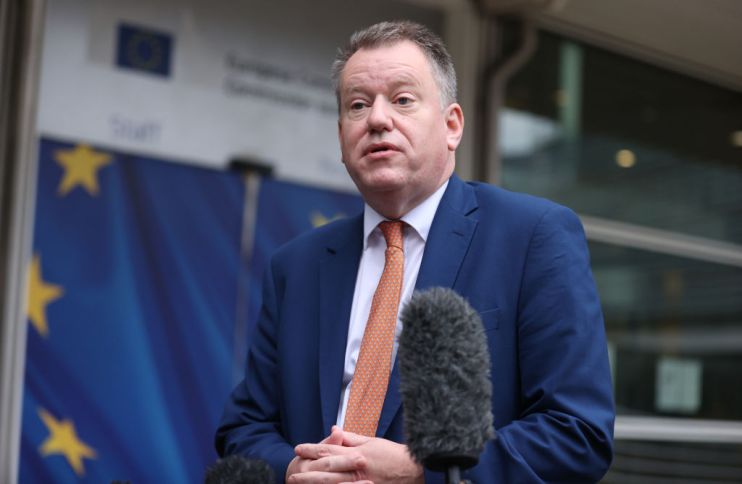Britain drops bid to reduce role of EU judges in Northern Ireland Protocol

Britain has caved in to Brussels over the legal role of European judges in Northern Ireland, amid ongoing talks over the country’s future, according to The Telegraph.
Downing Street’s chief negotiator Lord David Frost made the concession in a late attempt to unblock deadlocked discussions over the controversial Northern Ireland Protocol with The European Commission’s chief negotiator Maros Sefcovic, ahead of an expected final meeting between the pair before New Year.
Reducing the influence of the European Court of Justice (ECJ) was reportedly a red line for Lord Frost, but the commission has refused to enter into any negotiations over the role of the court since talks began in October.
The EU considers the ECJ to be a prerequisite for Northern Ireland’s continued access to the Single Market.
The UK will now accept the ECJ having the final say on matters of EU law as it is applied in Northern Ireland.
This means EU judges will continue to make rulings on cases, which must be followed by Northern Irish courts, and could lead to the UK having to appear before the ECJ if it fails to implement EU law properly.
The Northern Ireland Protocol created a border with Britain in the Irish Sea, and was agreed by the UK in 2019 before coming into force in January this year.
It gives the Luxembourg-based court oversight of EU law in Northern Ireland, which continues to follow single market rules after Brexit to prevent a hard Irish border.
The commission has ignored UK proposals to replace the ECJ with international arbitration comparable to the Brexit trade deal or the Withdrawal Agreement.
The Telegraph has reported Lord Frost will now ask Brussels to agree a staged approach to negotiations from next year.
The UK has given up on securing immediate concessions from Brussels and will instead focus on getting deals on medicines and cuts to border checks, which the commission is willing to discuss.
It hopes the EU will agree to discuss the ECJ in future negotiations but Brussels has shown no indication of changing its outlook on the matter so far.
While Downing Street suffered a set-back on judges, it will benefit from Brussels unilaterally opting to change EU laws, allowing the UK’s medicines agency to authorise new Covid-19 and cancer drugs for use in Northern Ireland.
Lord Frost has suggested removing medicines from the scope of the Protocol entirely, but no deal on medicines has been reached yet between either party.
Brussels will also extend grace periods in the protocol to guarantee the supply of medicines to Northern Ireland next year before the law change can enter into effect.